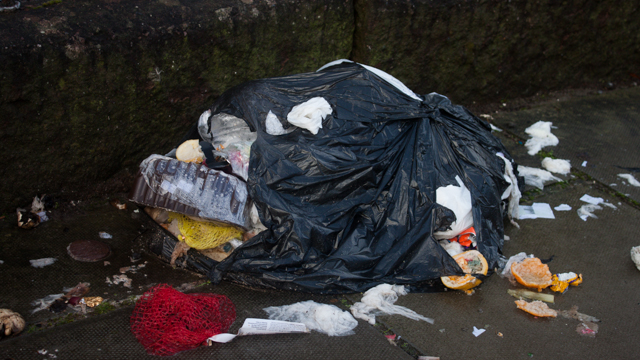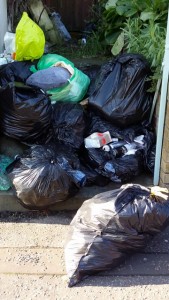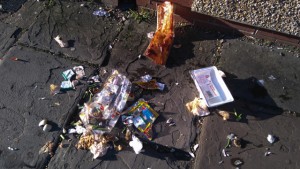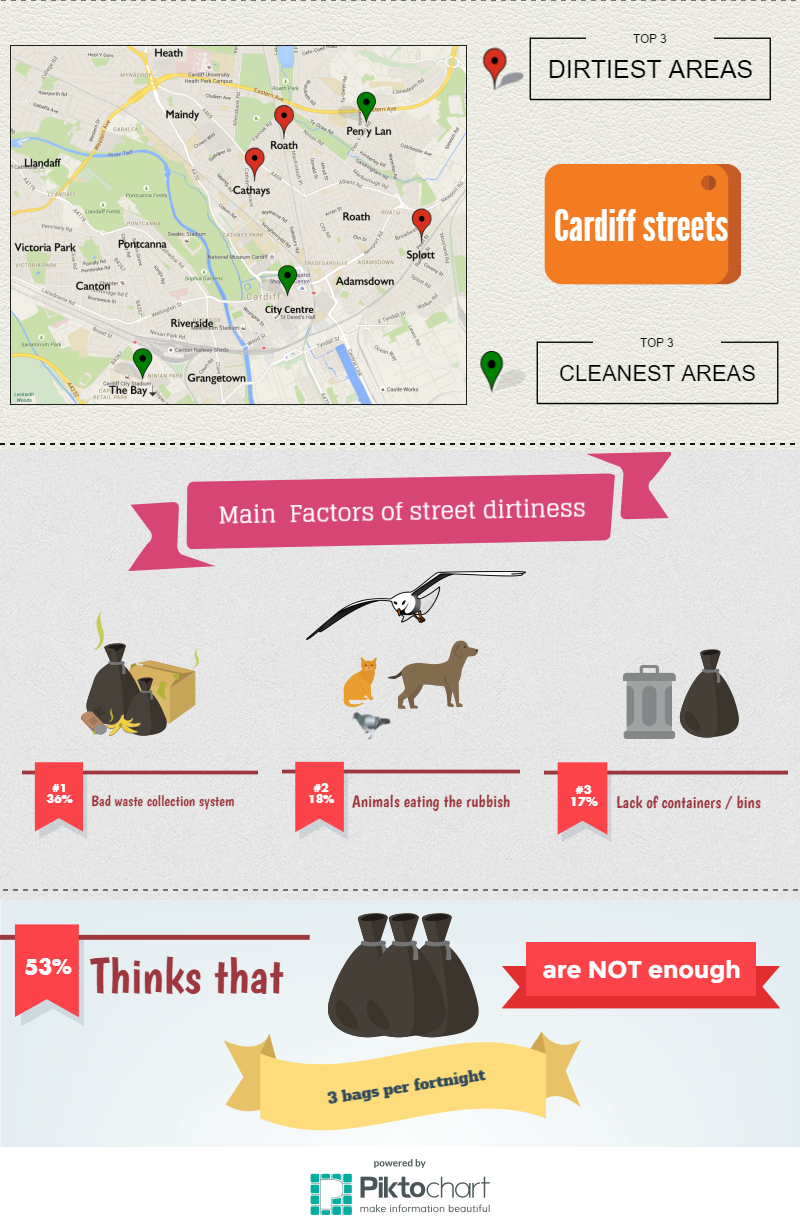A few months after reforms in the Cardiff waste collection system, streets in Cathays are dirtier than ever. Is it time to seriously rethink the system?

Early Wednesday morning in Cathays, people are zigzagging in the streets. Shouting and loud noises can be heard, fights can be seen. The party seems to have been going wild. This might sound like a regular scene in this student area but the ones partying are no students. They are gulls.
Fresh waste bags have been dropped in front of every house for collection and the fight for snacks begins between cats, dogs, pigeons and of course gulls. Walking in the streets becomes a challenge in which you have to face the mighty gulls who look ready for a fight if you dare approaching their now claimed rubbish bag.

With a very good survival rate and optimal conditions in towns, urban sea gulls have been flourishing in Cardiff. The absence of predators, the higher temperatures and the street light all play an important role in the process.
However, Peter Rock, urban gull expert, says: “The problem in Cardiff is that lots of people put their waste in black plastic bags. This is not a problem with sea gulls because the sea gulls are just taking advantage of an opportunity. So this is not a sea gull problem, this is a waste disposal problem.”
Last July, the city council decided to change its waste system collection drastically. The goal being to reach a new recycling target of 58% in the year 2015/2016 after being the worst performing local authority in Wales in 2014. Cardiff Council spent about £1.6m on new wheelie bins. Changes also included reducing black bags from 240L to 140L and a fortnightly limit of three bags per household.
Councillor Bob Derbyshire, Cabinet Member for Environment, says: “The intention was to replace old bins by new smaller black ones to take the residual waste down and encourage residents to recycle more.“

Food caddies are also provided in order to reduce the amount of waste put into the regular waste bins. However, this measure doesn’t seem to have stopped the birds and cats so far in the Cathays area.
Mr Hales who lives in Cathays says: “There are still things that can’t be recycled and that will have food on them so they [sea gulls] just automatically go straight for the bag anyway.” Another factor raised by some of Cathays’ inhabitants could also be that as people have less bags than before they try to put as much as they can inside, triggering the bags to break down more easily.
The fact that the dirtiest areas in town are populated by students is regularly acknowledged by WalesOnline. On a survey we launched in January asking people which areas they consider as dirtiest, Cathays and Roath were widely indicated and they are both mainly inhabited by students.
Councillor Derbyshire says: “I think students need to understand that they need to recycle. They are obviously not recycling enough.”
The City Council launched new awareness campaigns this year in collaboration with the Student Union to target this issue. However more than 75% of the students who answered our survey stated that they were not well informed about the waste collection system when they moved in.
In the non-student community, anger at the new system has raised. Comments to our survey included complaints about the new size of the bins, the lack of wheelie bins and the difficulty to get new bags. A respondent also commented “Changes should be made in consultation with residents and not forced upon them after a very limited feedback period during which not many actual residents feed into the process.”

Concerns about an increase of flytipping problems have also been raised by Cardiff citizens these months.
Judith Woodman, leader of the Liberal Democrats in the council, told Wales Online in November: “I’ve had a lot of people who do recycle well say, ‘No, I’m sorry the new bin is not a good size at all. It’s not going to help my family whatsoever.’ And I do think it’s going to lead to some flytipping.”
The council is denying any increase in flytipping following the launch of new waste collection system but has been tackling the problem by sending thousands of warning letters to residents who were putting their waste the wrong way. Recycling mistakes if repeated after the issue of a warning can incur in fines up to £100.
However, these warning and fines do not seem to improve the situation in Cathays so far. As confirmed by Mr Hales: “Most time you can’t walk in straight line down the streets because you have to avoid bits of rubbish. There is even a tree down the road where somebody has thrown a bin bag in the branches.”
So as long as the situation stays like this, the gulls will keep shouting, fighting and partying every Wednesday morning and people zigzagging through the streets to avoid bits of rubbish will keep being the norm.

